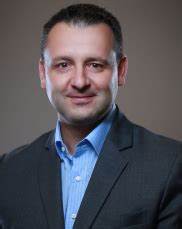the Chronicle This is a column, written by an external contributor. The chronicle expresses the attitudes of the writer.
Daily, the media report the consequences of a formidable shortage of health personnel.
Economic, in the form of hundreds of millions of additional costs linked to an ever-increasing reliance on purchasing labor from employment and temp agencies. Which costs at least twice as much as permanent employees.
In terms of capacity, where the lack of available staff increasingly creates undignified and illegal conditions, both for the sick waiting in line and for the elderly requiring care. And forces the elderly to lie on the floor, waiting for an available place in a retirement home and the care they deserve and are entitled to.
How did we get to this situation? Despite the fact that the warnings that this situation was going to happen were written in plain language by serious organizations such as Statistics Norway and NTNU almost twenty years ago? Based on very easily understandable and indisputable projections of the available domestic workforce in relation to the increase in the number of older people with health and care needs.
Already in 2009, Aftenposten offered a two-page article in which the challenge was illustrated in an educational and easy-to-understand manner. And he stressed that if the current level of care is to be maintained at the end of this decade, two out of three young Norwegians will have to choose a job in the health and care sector. Something that, of course, everyone knew would never happen. And it was certainly neither sustainable nor desirable.
It was obvious that the only realistic solution was to import labor. And this is the solution that other countries finding themselves in the same situation as Norway, such as Canada, have therefore chosen.
Already in 2012, the consequences of development had become precarious in many places, especially in most district municipalities. In the absence of initiative and interest from, among others, Norwegian politicians, health authorities, employers’ and employees’ organizations at central level, a local group was created to explore opportunities to establish collaboration with Philippine authorities and educational institutions.
Knut Solem, then Norwegian Ambassador to Manila, described, during a visit to Norway, the sad situation in the Philippines, where more than thirty thousand qualified nurses were unemployed after completing their university studies. In a situation where they were very vulnerable to a number of questionable actors, both domestic and foreign, including some Norwegian actors.
Philippine authorities and educational institutions are ready to cooperate to adapt the training of health personnel to meet Norwegian requirements for professional and language skills.
And the ILO had no objection to Norway recruiting in the Philippines. Because the country has a large surplus of qualified health workers who have no job prospects in their country of origin, and in addition, as a rule, a significant student debt.
Those of us who participated returned to Norway very optimistic. With the experience of having found a good solution to the biggest challenge of the Norwegian districts, hospital system and social protection. Here and there, and for the future.
But with growing disappointment and frustration, we were quickly able to determine that those we thought we were encouraging would have turned their backs and kept quiet. Politicians, health authorities, trade unions, employers’ organizations and educational establishments. No active resistance, just shrugs and silence. Until we realized that all the doors were closed.
And short-term opportunism paid off. For everyone except those who negotiate higher salaries and bonuses today. But which will also eventually age and require care. Like cowardly politicians who didn’t dare. Because they did not want to arouse Stutumism and xenophobia. It will of course also be costly for all of us who, sooner or later, must adapt to a life with a health system in crisis and public care that does not live up to the standards we have legislated and expected.
But perhaps especially for those who haven’t had the chance to use their skills to create a better life for themselves and their loved ones. And who perhaps had the hope of collegial and human solidarity.

“Tv guru. Analyst. Lifelong alcohol junkie. Friendly bacon specialist. Twitter nerd.”






